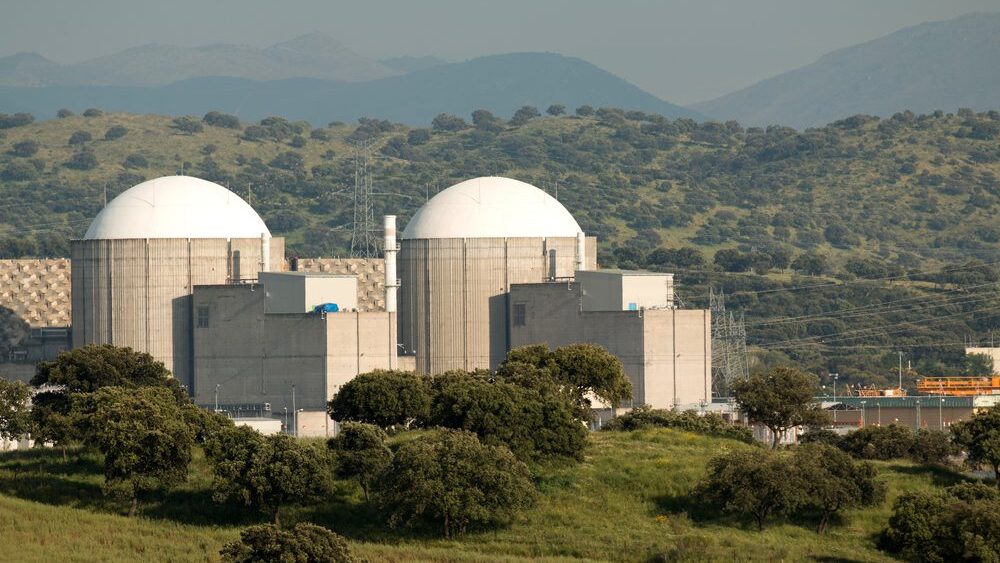
Almaraz Nuclear Power Plant
Madrid looks like bucking the recent European trend on nuclear energy as Spain’s socialist government confirmed shortly before Christmas that it would begin a total phase-out of nuclear power from 2027, despite opposition claims that the country is not prepared for a post-nuclear future.
In one of the first European countries to embrace nuclear energy, it now accounts for approximately a fifth of Spain’s energy consumption. Despite nuclear’s importance since the 1960s, the Sánchez government is looking to complete its shutdown by 2035. Spain currently has five active nuclear power plants. Their closure on ‘environmental grounds’ is a longstanding goal of the country’s anti-nuclear Left.
Almaraz Nuclear Power Plant on the Portuguese border will be the first power station to shutter in 2027, under the plans of the Spanish government, which has already developed a €20 billion roadmap for clearing up radioactive waste at various sites.
The topic of nuclear power featured heavily in the recent Spanish election cycle as Sánchez’s socialist PSOE party—like most parties on the Left—favours the shutdown. In contrast, right-leaning organisations such as VOX and the Partido Popular oppose the closures and argue that heavily subsidised green technology is unable to make up the energy shortfall.
While the heads of Spain’s energy companies have confirmed that there are no technical hurdles in extending the lifespan of the facilities, the Spanish government has opted to pursue an anti-nuclear strategy hoping that hydrogen fuel could make up the gap in the market.
Terminating the country’s nuclear reactors has been a 50-year goal of the Spanish Left, with Basque terrorism famously forcing the closure of Lemóniz Nuclear Power Plant in 1983 resulting in a national moratorium on new nuclear power plants.
Many energy chiefs have admitted that keeping the nuclear power plants disincentivizes public and private sector investment into the renewable sector. Spain also hopes to shut down its remaining coal power plants by 2030 in tandem with the anti-nuclear push.
The government argues that the Spanish nuclear sector is ageing, costly, and environmentally unfriendly, with the ruling socialists taking a distinctly anti-nuclear stance at an EU level.
The past year has seen Spain rocked by various renewable energy scandals as it continues despite EU and U.S. pressure to import record amounts of Russian gas following a spat with its traditional energy partner Algeria.
Due to the technical characteristics of a nuclear shutdown, Spain has only until 2024 to stop the closures with both the populist VOX party and the conservative Partido Popular arguing that the decision is myopic in light of Europe’s energy woes.
Spain’s anti-nuclear policy shift comes as Germany is lambasted by industry experts for its ideologically motivated decision to kill off its nuclear reactors despite sharply rising prices. Currently, 12 out of 27 EU nations use nuclear energy, with Poland and Estonia the most recent Eastern European countries looking to opt for the energy source (with the financial assistance of the United States).
